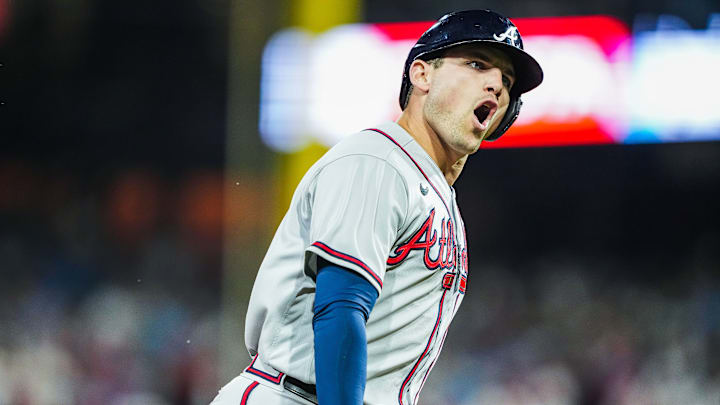To most outside observers, what the Atlanta Braves have accomplished as an organization is a marvel. Not only have they been able to develop loads of young talent and make savvy moves to bolster their roster over the last several years, but they have also been extremely aggressive in locking up these guys on extensions to help keep the good times rolling.
The strategy makes loads of sense from the Braves' perspective. The guys they have been extending are very obviously loaded with talent and extending them now adds some team control and also controls their cost versus seeing what happens in arbitration. Just thinking about what Ronald Acuna Jr. would have gotten in arbitration is enough to send shivers down one's spine. Also, the Braves have avoided long-term commitments with pitchers other than Spencer Strider who are, without question, the riskiest demographic when it comes to longer deals.
However, former member of the Braves' front office and ESPN prospect guru Kiley McDaniel recently shared his thoughts on the Braves and how nothing is guaranteed when it comes to the guys they have locked in long-term on the roster.
"There's a downside people don't talk about if things don't go exactly to plan"@kileymcd dishes on the @Braves best-laid plans and the uncertainty if things go sideways.
— Foul Territory (@FoulTerritoryTV) January 31, 2024
▶️ https://t.co/Oc7BCsv1xu pic.twitter.com/Z0YKzY8V1g
Kiley McDaniel just made a very interesting point about the Braves current roster situation
First and foremost, Kiley McDaniel does not hate the Braves nor does he even argue that how the Braves have gone about their business was a strictly bad idea. What he did say is that all of these extensions they have handed out carry with them some inherent risk because all of this money is now guaranteed and these guys are going to get steadily more expensive as per the terms of their deals. That, in turn, could hinder the Braves' payroll flexibility down the line especially if they can't get more minor league talent coming through their farm system to replace guys that might stumble.
Frankly, Kiley does have a point here. If all of these guys continue to remain among the best players at their positions, then there isn't really an issue because the Braves won't have any needs at those roster spots. However, if a guy gets hurt or turns back into a pumpkin for whatever reason, owing him eight or nine figures over the next several years in guaranteed money would be a tough hurdle to overcome from a payroll perspective in terms of finding a replacement. For example, if Austin Riley all of a sudden can't hit above .240 and can't play defense without Ron Washington around, his $212 million extension he signed in August 2022 looks decidedly worse than it does at the moment.
That said, the benefits for the Braves outweigh the potential costs here. Kiley's point about all of this guaranteed money is a good one, but there is a strong likelihood that the Braves were going to be keeping the vast majority of these guys and keeping their individual costs controlled has allowed them to field a deep roster that protects against one or two guys coming back to earth. Also, every player is a risk in the long-term and fielding a roster full of strictly arbitration-eligible players and guys on one or two year deals is probably more likely to be unsustainable in the long-term and potentially more expensive. Again, just imagine what Ronald Acuna Jr., Ozzie Albies, Austin Riley, Michael Harris II, and Spencer Strider would get in an arbitration hearing.
So could all of these extensions turn out to be a payroll challenge down the line? Maybe, but that seems a little overblown as well. The Braves have $205ish million committed to 2025's roster and the numbers drop off considerably after that. We'll see how things shake out, but the Braves are probably still in a great spot even if a couple things don't break their way.
